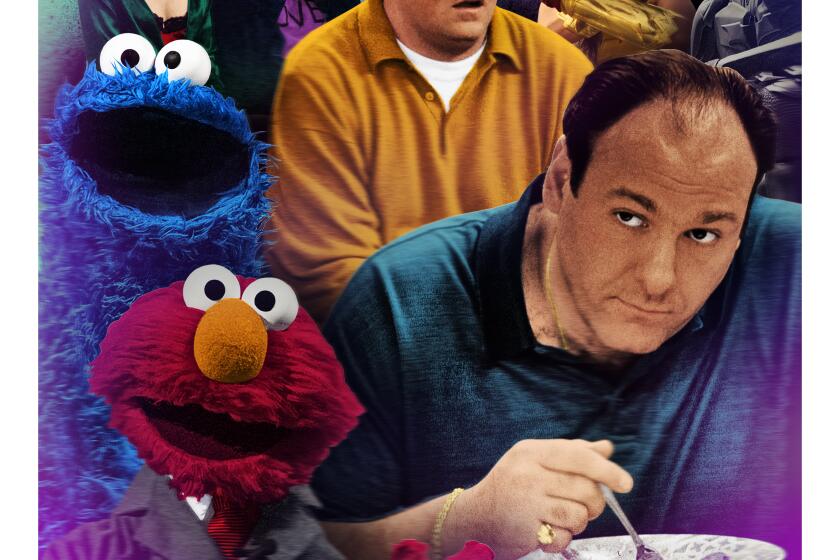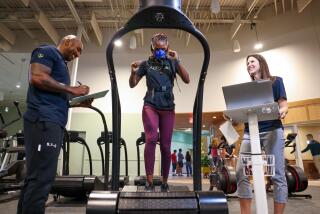Seven romances before meeting the love of your life? We assess a new rom-com’s stats
The first frames of “Love Life” are filled with science.
“Our love lives can quite easily be reduced to data,” says an unseen narrator. “For instance, by the time the average person ends up with the love of their life, they will have been in seven relationships. Of those, two are often long-term relationships, while the rest are a mix of short-term flings, casual dating and one-night stands. The average person will also fall in love two of those times, and have their heart broken twice as well.”
These statistics sound somewhat familiar, probably because you’ve read some version of them before. And since they’re stated by a smart-sounding British woman at the very beginning of a TV show, they must be important to the story, and they must be true — right?
That’s exactly what creator and co-showrunner Sam Boyd wants you to think watching “Love Life,” which premiered with three episodes on Wednesday as part of the launch of new streamer HBO Max. The anthology series, starring Anna Kendrick, charts the personal and professional growth of a single character through her various interpersonal connections, with each of the 10 episodes zooming in on a specific relationship.
Times TV critic Robert Lloyd on the HBO Max original content available at launch, including Elmo, ‘Legendary,’ ‘Love Life,’ ‘Looney Tunes’ and ‘Craftopia.’
“I’m well aware that this isn’t the first story about young people dating in New York City,” Boyd told The Times with a laugh. “And our main character is so ordinary that she wouldn’t necessarily seem like she’d be at the center of a show like this.
“But people in general are always trying to latch on to statistics or advice or powerful quotes as a way to make sense of their lives, and we’re doing the same thing. The data gives structure to the show, and makes her journey like a case study for all of our own searches for love. That was our way of clueing the audience in on that.”
Boyd, who wrote and directed the pilot, can’t recall where he first found the relationship stats. Similarly, the second episode opens with data about divorce; the third has a semi-historical reenactment that raises the issues of contraception and casual sex. (Again, these inclusions are more for dramatic effect than to provide factual evidence, said Boyd.)
“I don’t think we want people to think that we’re building our story on this foundation of the exact science of a relationship or anything like that,” said co-showrunner Bridget Bedard. “It’s supposed to feel lighter than that, a more poetic way of saying, ‘Everybody goes through a lot of [relationships] before they figure out who they are and who they should be with.’”
These lines are given an extra sense of gravitas thanks to Lesley Manville, the Oscar-nominated actress who serves as the show’s omniscient narrator. She’s never shown on screen and has no relation to the show’s characters, but her aural appearances facilitate the episodes’ time jumps, offer fun commentary on certain scenes and amplify the inner thoughts of Kendrick’s character Darby, a people-pleaser who holds her tongue around bad boyfriends, toxic bosses and condemnable friends.
What is HBO Max? Video-on-demand service has HBO originals, Warner Bros. shows and movies
Boyd and Bedard hope viewers instead focus on what Manville says after all those stats in that first episode: “Yet behind all of those numbers, there is always a much bigger story.” And by showcasing the meandering nature of Darby’s romantic journey, viewers will celebrate their own paths as well.
“I hope the show gives people those pangs of recognition of, ‘Oh, my God, I made that mistake too; I was so young and I didn’t even know enough yet,” said Boyd. “We wanted to plug into that personal nostalgia, and remind people of what it’s like to look back on your own life and all the other previous versions of yourself.”
Subsequent seasons of “Love Life” will each follow a different protagonist. Season 2 will center on a “side character” in Darby’s life, and it won’t be another young, heterosexual white woman. Future seasons would showcase different perspectives, of gender, race, sexual orientation or age, said Bedard. (And the show’s writers would be staffed to reflect those perspectives.)
“We definitely wouldn’t be like, ‘Here’s Darby 2.0!’” said Boyd. “Everyone, no matter who they are or where they come from, wants to feel love and connect. That’s the point we’re trying to make, and we want to tell as many different stories as we can to illustrate that idea.”
More to Read
The complete guide to home viewing
Get Screen Gab for everything about the TV shows and streaming movies everyone’s talking about.
You may occasionally receive promotional content from the Los Angeles Times.








